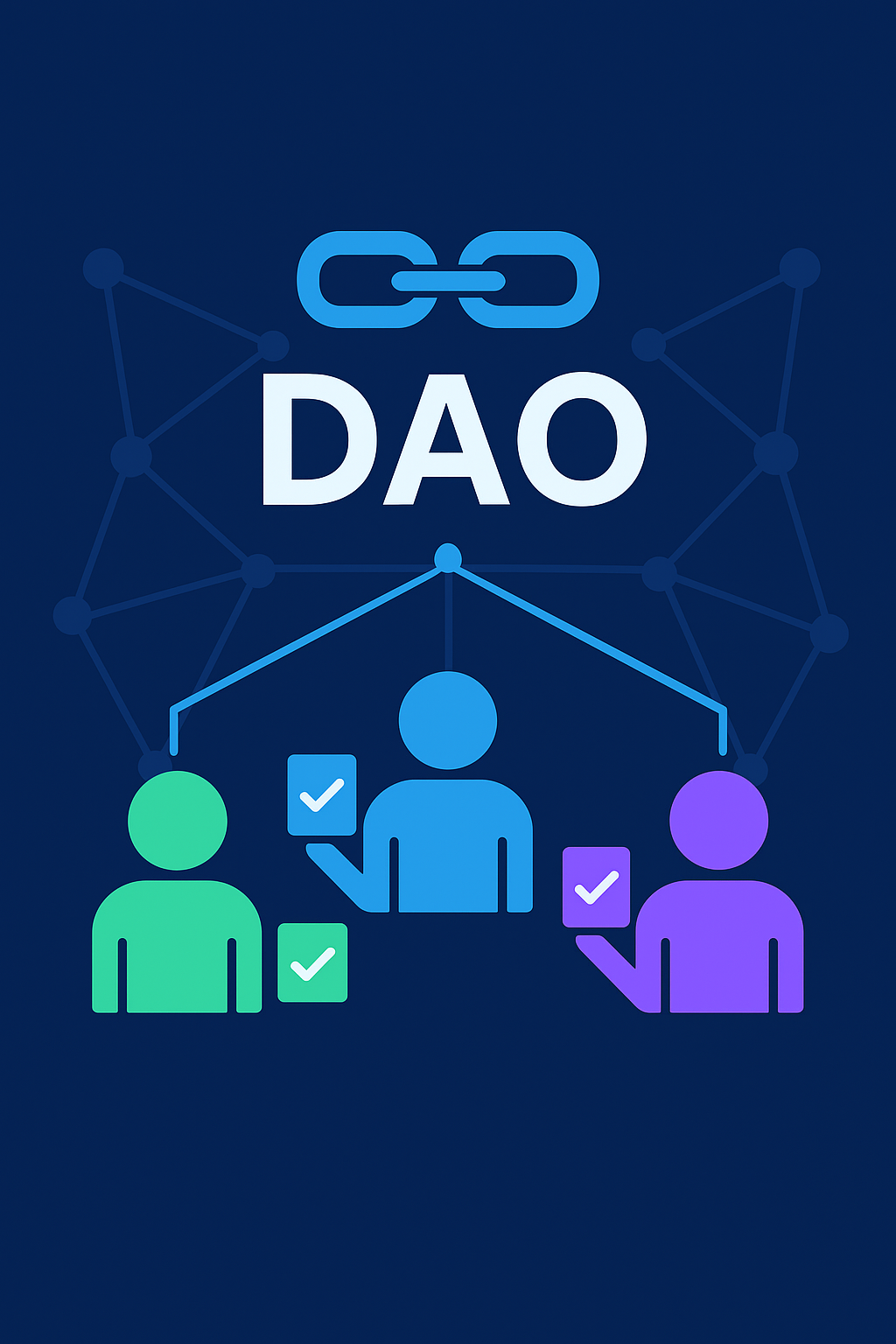DAO: Decentralized Autonomous Organizations Explained Simply
The world of crypto is full of new terms and concepts — and one of the most exciting is DAO, or Decentralized Autonomous Organization. At first glance, it may sound complex, but the idea is actually straightforward: a DAO is an organization run by code, not by people.
Let’s break it down in simple words.

🤔 What Is a DAO?
A DAO is like a digital company or community that doesn’t need a CEO or a central authority to make decisions.
Instead, rules are written into smart contracts on the blockchain, and members vote on changes.
Decentralized → No single person or government controls it.
Autonomous → It runs automatically based on the code.
Organization → People come together around a common goal.
In short: a DAO is a new way for people to collaborate online, transparently and fairly.
🛠️ How Does a DAO Work?
Rules in Code: Smart contracts set the foundation — for example, how funds are spent or how votes are counted.
Tokens for Voting: Members often hold governance tokens that let them vote on proposals.
Transparent Decisions: Every decision is recorded on the blockchain for anyone to verify.
Imagine a club where instead of one leader making decisions, everyone votes, and the rules are enforced automatically by code.
🌍 Examples of DAOs
MakerDAO – governs the stablecoin DAI.
Uniswap DAO – controls the largest decentralized exchange.
DAO Collectives – groups of people pooling funds to buy NFTs, art, or even real-world assets.
DAOs are already managing billions of dollars in the crypto economy.
💡 Why Are DAOs Important?
Transparency: No hidden decisions — everything is on-chain.
Global Collaboration: Anyone, anywhere can join and contribute.
Fairness: Power is distributed among token holders, not concentrated in one leader.
This is a shift from traditional organizations, where CEOs or boards hold most of the power.
⚠️ Challenges DAOs Face
Like any new technology, DAOs also face risks:
Low voter participation — not everyone votes.
Complex legal status — governments are still figuring out how to regulate DAOs.
Security risks — smart contract bugs can be exploited.
Still, as DAOs evolve, these challenges may be solved with better governance models and stronger code.
🚀 The Future of DAOs
Many believe DAOs could redefine how businesses, communities, and even governments operate in the future. Imagine:
Investment funds run entirely by community vote.
Global charities where donors decide transparently how funds are spent.
Online communities evolving into fully functional digital nations.
The DAO model shows us a future where organizations are open, transparent, and powered by the people who use them.
🎯 Conclusion
DAOs may seem futuristic, but they’re already here and growing fast. They’re more than just a crypto experiment — they represent a fundamental shift in how humans can organize and collaborate.
As blockchain adoption grows, expect DAOs to play a major role in the way we build companies, manage money, and govern communities.
👉 Keep an eye on DAOs and other blockchain innovations with the NFTBirdies Blog & Calendar.
Topics
Recent comments
